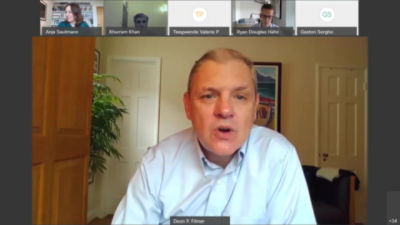Event Materials
Presentation (PDF)
Papers

Great strides have been made in preventive care in the last two decades. Today, better care for acute illness is central to further reducing mortality and morbidity. However, the process of accessing and using healthcare involves a series of complex decisions: families must determine whether an individual’s symptoms warrant a doctor visit, providers have to decide on diagnostic steps and treatment, and patients need to purchase medications and complete the treatment course. If this process does not effectively allocate treatment, underuse of care can coexist with overuse and misuse, imposing considerable burdens on resource-strapped healthcare systems.
In this talk, World Bank economist Anja Sautmann will present three studies with patients of public health clinics in Mali. One examines the effect of healthcare subsidies and community health worker visits on the decision to seek care for children; a second asks to what degree providers are able to act as “gatekeepers” against patient demand for unnecessary malaria prescriptions; and a third shows different rates of antibiotics adherence in children by gender. Together they document varying degrees of underuse and overuse at all three decision margins for acute care. The talk will discuss the causes of this misallocation and potential levers for policy interventions, and point to current knowledge gaps.
The monthly Policy Research Talks showcase the latest findings of the World Bank’s research department, challenge and contribute to the institution’s intellectual climate, and re-examine conventional wisdom in current development theories and practice. These talks facilitate a dialogue between researchers and operational staff and inform World Bank operations both globally and within partner countries. Read More »